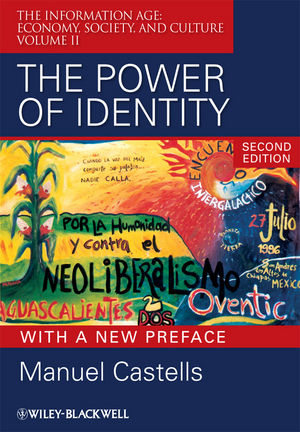Mary Joyce (ed.): Digital Activism Decoded. The New Mechanics of Change (2010)
Filed under book | Tags: · activism, facebook, mass media, media activism, social movements, twitter, web 2.0

The media have recently been abuzz with cases of citizens around the world using digital technologies to push for social and political change—from the use of Twitter to amplify protests in Iran and Moldova to the thousands of American nonprofits creating Facebook accounts in the hopes of luring supporters.
These stories have been published, discussed, extolled, and derided, but the underlying mechanics of the practice of digital activism are little understood. This new field, its dynamics, practices, misconceptions, and possible futures are presented together for the first time in Digital Activism Decoded.
Topics include:
* how to think about digital activism
* the digital activism environment: infrastructure, social, political, and economic factors
* digital activism practices: two research perspectives and the danger of destructive activism
* digital activism’s value: balancing optimism and pessimism
* building the future of digital activism
Publisher: International Debate Education Association, New York, June 2010
Licensed under the Creative Commons Attribution License BY-NC 3.0 US.
ISBN 978-1-932716-60-3
228 pages
Video from the book launch and discussion
More
Theodore Roszak: The Making of a Counter Culture: Reflections on the Technocratic Society and Its Youthful Opposition (1969)
Filed under book | Tags: · 1960s, counterculture, gestalt theory, hippies, new left, social movements, sociology, technocracy, technological society, technology, youth

When it was published, this book captured a huge audience of Vietnam War protesters, dropouts, and rebels – and their baffled elders. Theodore Roszak found common ground between 1960s student radicals and hippie dropouts in their mutual rejection of what he calls the technocracy – the regime of corporate and technological expertise that dominates industrial society. He traces the intellectual underpinnings of the two groups in the writings of Herbert Marcuse and Norman O. Brown, Allen Ginsberg and Paul Goodman. Alan Watts wrote of The Making of a Counter Culture in the San Francisco Chronicle in 1969, “If you want to know what is happening among your intelligent and mysteriously rebellious children, this is the book. The generation gap, the student uproar, the New Left, the beats and hippies, the psychedelic movement, rock music, the revival of occultism and mysticism, the protest against our involvement in Vietnam, and the seemingly odd reluctance of the young to buy the affluent technological society – all these matters are here discussed, with sympathy and constructive criticism, by a most articulate, wise, and humane historian.”
Publisher Anchor Books, Doubleday, New York, 1969
303 pages
The Making of a Counter Culture (English)
El nacimiento de una contracultura (Spanish, trans. Angel Abad, 1970/1981, added on 2013-7-2)
Manuel Castells: The Power of Identity: The Information Age: Economy, Society, and Culture, 2nd ed. (2009)
Filed under book | Tags: · economy, globalisation, identity, information society, network culture, networks, politics, social movements, technology, terrorism, women

In this second volume of The Information Age trilogy, with an extensive new preface following the recent global economic crisis, Manuel Castells deals with the social, political, and cultural dynamics associated with the technological transformation of our societies and with the globalization of the economy.
* Extensive new preface examines how dramatic recent events have transformed the socio-political landscape of our world
* Applies Castells’ hypotheses to contemporary issues such as Al Qaeda and global terrorist networks, American unilateralism and the crisis of political legitimacy throughout the world
* A brilliant account of social, cultural, and political conflict and struggle all over the world
* Analyzes the importance of cultural, religious, and national identity as sources of meaning for people, and its implications for social movement
* Throws new light on the dynamics of global and local change
Publisher John Wiley and Sons, 2009
Information Age Series, Manuel Castells
ISBN 1405196874, 9781405196871
Length 584 pages

